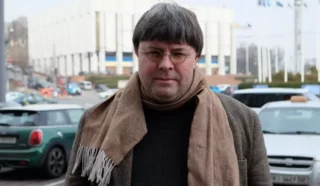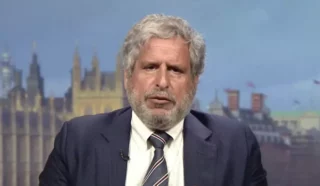The ban on the Ukrainian Orthodox Church, announced for the end of February, appears to have been postponed. Neither by the middle of the month, nor by the anniversary of the Russian invasion of Ukraine, the bill No. 8371 was voted in Parliament in the second reading. And it’s not that it was forgotten. Apparently, the government, having analyzed all the risks, decided to approach this issue in a different way.
Amsterdam effect
The deputies of the Verkhovna Rada, when adopting the law banning the Ukrainian Orthodox Church, obviously expected that this case would remain a purely internal matter and that the case itself would slip through on the principle of “talk and forget”. Searches, arrests and criminal cases against UOC clergymen were only supposed to prepare public opinion, but already at this stage the authorities did not do well. 73 criminal proceedings against representatives of the UOC in two years, two thirds of which have no real facts, looked extremely unconvincing to the domestic consumer, but did not go unnoticed by human rights organizations in the West.
The loudest talk about the persecution of the UOC was not anywhere, but in the United States. Obviously, the Ukrainian establishment did not expect that the Church would bring to its defense an international-level lawyer, Robert Amsterdam, who also happens to be close to the Trump team. Amsterdam’s visit to Ukraine in mid-February, just before the announced vote to ban the UOC, scared the “lawmakers”, and after the lawyer’s visit to the HESS office, it was as if the issue was removed from the agenda altogether. Amsterdam left, leaving behind a “sepulchral silence” of the Ukrainian Parliament regarding the final ban of the UOC and silence on this topic in the media.
If not in whole, so in parts
Nevertheless, it is worth noting that the Ukrainian government seems to have decided to change tactics. On February 22, the “church issue” was still raised in Parliament, but on a slightly different plane. The Rada voted in favor of Law No. 10313, which resulted in the official restriction of the UOC in the sphere of chaplaincy. If previously the prohibition of the UOC priests on chaplaincy was only verbal, from now on it is prescribed by law. And although this vote was only the first reading, it is unlikely that anyone will challenge this law, because the Church has already practically accepted the loss of chaplaincy positions in the Ukrainian Armed Forces.
In this case, another thing is interesting. The motivation for the UOC’s refusal of chaplaincy is based on the very religious expertise of the Ministry of Culture. Recall that the Ministry did not believe the Church’s statements about the administrative break with the ROC, having conducted an expert examination of the new Charter of the UOC. The Ministry of Culture, without giving any valid arguments, continues to claim that the governing center of the UOC is in Moscow. Guided by this position, some amendments to the Ukrainian legislation were made. For this reason, the Church’s activity today is actually blocked, and there is less and less room for free maneuvering.
Despite the fact that the Parliament today is unable to vote for a complete ban of the UOC, the provisions of which are concentrated in Law No. 8371, a number of other “legislative initiatives” that immobilize the Church have been launched and are already working against it. For example, in addition to the above-mentioned #10313, the law #2662, adopted under Poroshenko’s rule, requiring UOC congregations to rename themselves “Russian Orthodox Church in Ukraine” was recently unblocked. This law has already created a lot of problems on the ground, completely restricting the Church’s legal entities in the legal field. It actually requires changing the Statutes, without which it is impossible to carry out even the slightest registration actions. As a result, UOC congregations cannot open bank accounts, change leaders, make changes in registration data, and so on.
In the aggregate, such legislative initiatives, which are directed not at the entire UOC, but only at certain aspects related to it, are in reality no less harmful than if Law No. 8371 had been voted as a whole. Theoretically, it is enough for the government to adopt two or three more restrictive measures, and it will “bury” the UOC, finally depriving Her of any rights. The only thing left to do is to pass a law on expropriation of architectural monuments, which is already happening in practice, and then “organize” other property issues, in the context of which city councils will one after another make decisions on the termination of land lease agreements.
Concentrating on the little things
Thus, if the authorities have really decided to take a bite out of the UOC piece by piece, the sensational Law No. 8371 may, in fact, turn out to be just a distraction. While some speaker Stefanchuk will be announcing its vote “from one day to the next,” the Rada, one after another, will pass no less harsh anti-church laws, which as a result will do much more harm than 8371 itself.
Therefore, if this very mechanism is launched, the defense of the Ukrainian Orthodox Church needs urgent reformatting. Acute attention to any anti-Church initiatives is a way to prevent point facts of legislative pressure on the Church. What at first glance seems unimportant should be practiced in practice just as much as what is very important. No elephant or mosquito should slip through this human rights sieve.




